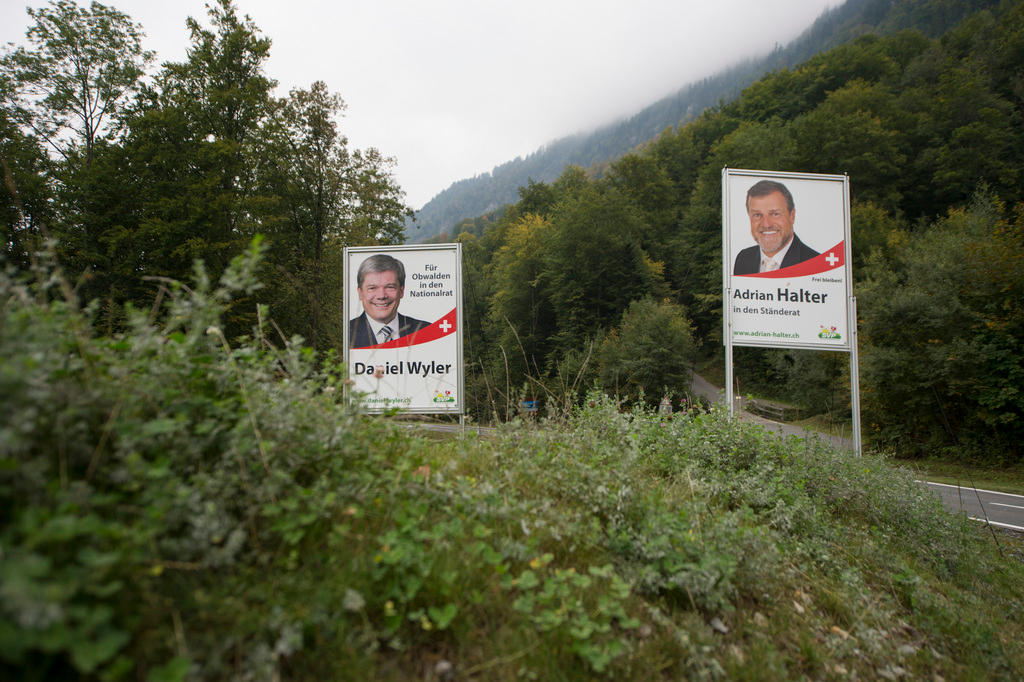
Contrast growing between Swiss political parties

The polarisation in Swiss politics has increased further, according to a scientific analysis of the 2015 parliamentary elections.
The authors of the study, which was conducted by the Foundation of Research in Social Sciences (FORS), found that the electorate has not shifted substantially to either the left or the right overall over the past two decades.
But according to a statement published on Monday, “the voters of Swiss People’s Party have become considerably more rightwing, and those voting for the Radical Party have become slightly more rightwing”.
The two parties were also seen as the main winners of the parliamentary elections last October.
For their part, the two main leftwing parties, the Social Democrats and the Greens, moved further to the left, but they could no longer attract as many voters from the centre compared with elections in 1995.
Core policy themes
The electorate considered migration, asylum and refugees – the policy agenda of the People’s Party – as the most important issues in the last two months of the election campaign.
The Radicals were seen as the party most committed to economic policy, and the most capable when it comes to European policy, according to the study.
The centrist Christian Democratic Party, the fourth party represented in the government, is struggling to keep its traditional voters – a group that has been shrinking over the years.
Two relatively young centrist parties – the Conservative Democrats and the Liberal Greens – both still have fairly unstable bases, the researchers found.
Financed by the Swiss National Science Foundation, the study is based on a post-election survey of 5,337 voters.
On four occasions, 7,000 to 11,000 individuals were polled before and after the elections. The polls also include 1,676 candidates for the House of Representatives and the Senate.

In compliance with the JTI standards
More: SWI swissinfo.ch certified by the Journalism Trust Initiative




























You can find an overview of ongoing debates with our journalists here . Please join us!
If you want to start a conversation about a topic raised in this article or want to report factual errors, email us at english@swissinfo.ch.